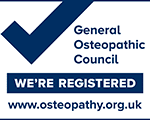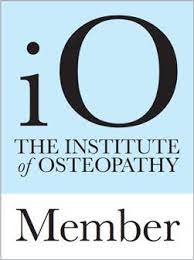What is Good Posture?
Here at Hutchinson Health, we often see patients struggling with back pain, neck stiffness and certain kinds of headaches, all of which can be symptoms of poor posture. In today’s world, where many of us spend hours hunched over desks, looking down at phones or sitting stationary for extended periods, maintaining good posture is more important than ever. Proper posture isn’t just about standing up straight; it’s about keeping your spine aligned to reduce strain on muscles and joints, improve circulation, and enhance overall well-being. As a chiropractic clinic, we understand good posture, and we’re able to provide expert advice on achieving and maintaining good posture, as well as treating any painful symptoms you have because of it. If you’d like to know more about how we can help, contact us or book your appointment now.
Why Good Posture Matters



Reduces Pain and Discomfort
Poor posture places excessive stress on your spine, leading to chronic pain, particularly in the neck, shoulders, and lower back. Over time, misalignment can contribute to conditions like sciatica, herniated discs, and muscle imbalances. By maintaining proper posture, you distribute weight evenly across your body, reducing strain and discomfort.
Prevents Long-Term Spinal Issues
Slouching or sitting incorrectly for long periods can lead to long-term spinal misalignments. Over time, these misalignments may contribute to conditions such as degenerative disc disease or early-onset arthritis. A well-aligned spine ensures that your body functions optimally and prevents unnecessary wear and tear.
Improves Breathing and Circulation
When you slouch, your ribcage compresses, restricting and placing added stress on the lungs, making it harder to take deep breaths. Proper posture keeps your chest open, allowing for better oxygen intake and improved circulation, which enhances energy levels and overall health.
Enhances Digestion
Believe it or not, poor posture can also affect digestion. Slumping over compresses the abdominal organs, slowing digestion and leading to issues like acid reflux and bloating. Maintaining an upright posture allows your digestive system to function properly.
Boosts Confidence and Mental Health
Posture doesn’t just affect physical health; it also influences how you feel. Studies show that maintaining an upright posture can boost confidence, reduce stress and even improve mood. Standing tall sends signals to your brain that promote positivity and self-assurance.
How to Improve Your Posture
At Hutchinson Health, we emphasise that small, consistent changes can make a significant difference in improving posture. Here are some practical tips to help you develop better habits:



Be Mindful of Your Posture Throughout the Day
The first step to better posture is awareness. Regularly check in with your body—are your shoulders rounded? Is your head leaning forward? Make a habit of correcting your posture whenever you notice slouching.
Set Up an Ergonomic Workspace
If you work at a desk for long hours, an ergonomic setup is essential. Adjust your chair so your feet rest flat on the floor, keep your computer screen at eye level to avoid straining your neck and use a chair that supports the natural curve of your lower back. Taking regular breaks every 30–60 minutes to stretch and move around is also hugely beneficial.
Strengthen Core and Back Muscles
A strong core provides the support your spine needs to maintain good posture. Incorporating exercises like planks, bridges and rows for your shoulder blades will go a long way to improving your core strength.
Practice Proper Sitting and Standing Posture
Sitting: Keep both feet flat on the floor, sit back in your chair with your lower back supported, and avoid crossing your legs.
Standing: Keep your shoulders back, chest open, and weight evenly distributed between both feet. Avoid locking your knees or shifting your weight onto one side for too long.
Stretch Regularly
Stretching helps counteract the tightness that comes from prolonged sitting or poor posture. Some effective stretches include chin ticks, chest openers and hip flexor stretches.
Consider Chiropractic Care
Chiropractic adjustments can help correct misalignments caused by poor posture, relieve tension, and restore proper spinal function. Regular chiropractic care ensures that your spine remains in its optimal position, preventing long-term issues and improving overall mobility.
Good posture is the foundation of a healthy body. By making small adjustments to your daily habits, strengthening key muscles and seeking chiropractic support when needed, you can prevent pain, improve function, and enhance your overall quality of life.
If you’re struggling with posture-related discomfort, our chiropractic team is here to help. Contact us today or use the quick and easy online booking system to schedule a consultation and take the first step toward a healthier spine and body!












